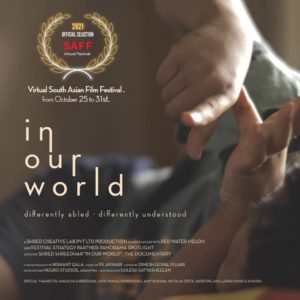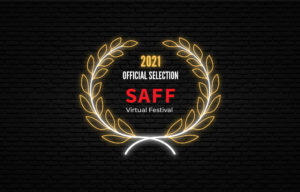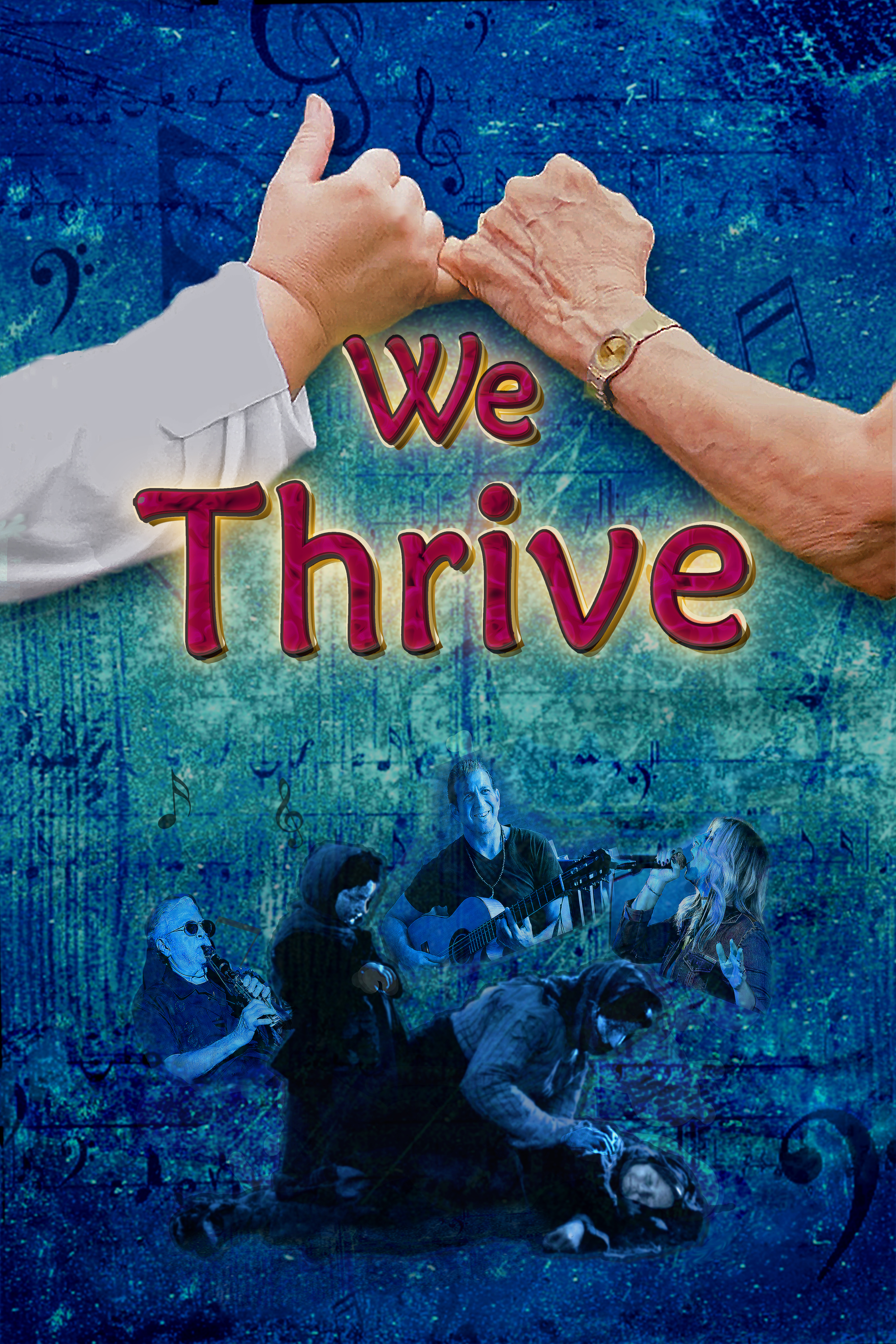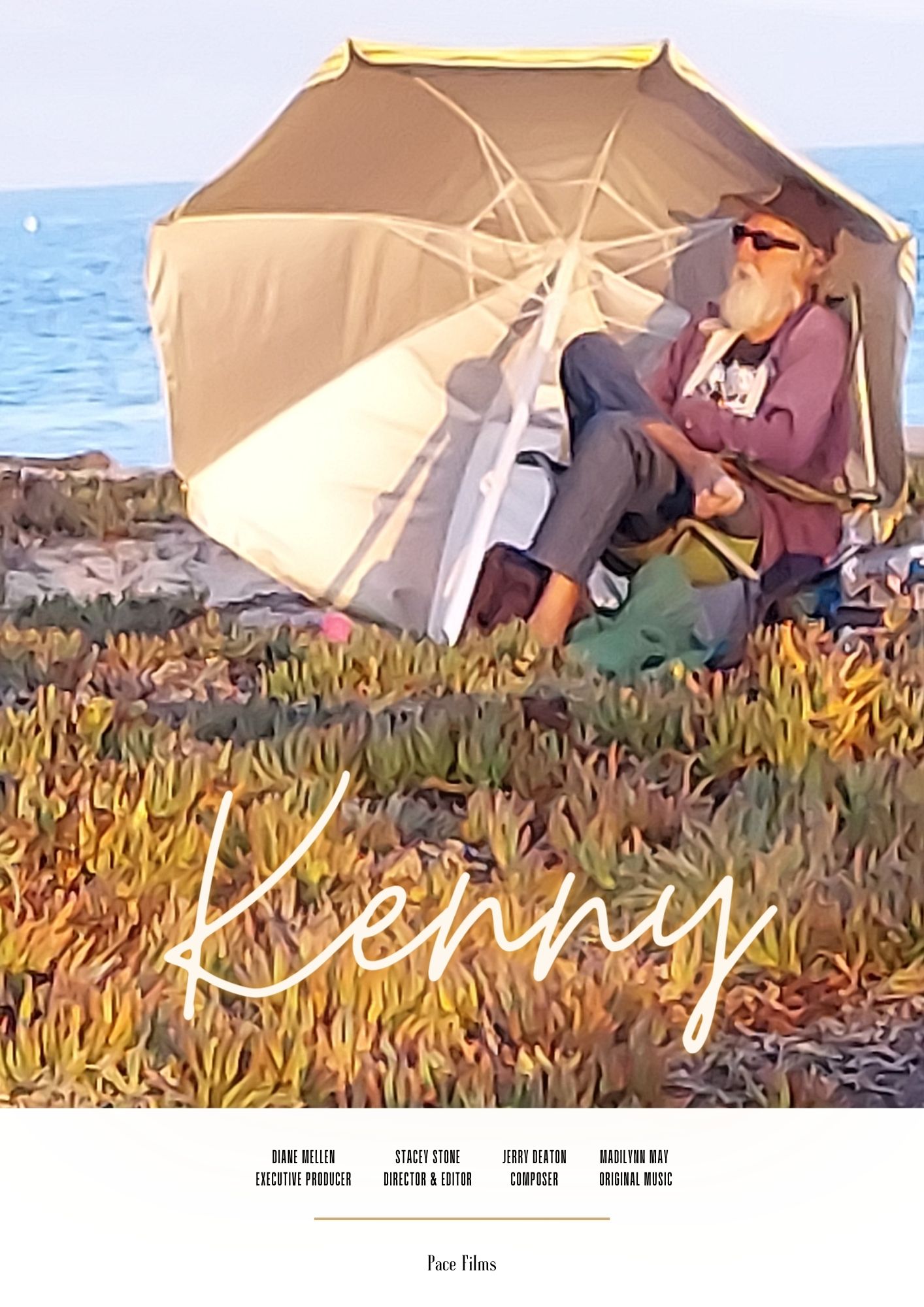
VSAFF 2021 Documentary Film Review “In Our World”
WATCH THE TRAILER HERE
First, the Recap:
A frame of reference. The measurement of, and subsequent thoughts arising from, any given objective, circumstance, or undertaking often finds its starting point with this. We seek a guide, something that will allow us to see that which we are attempting to achieve based on established criteria we can then compare and/or judge our outcomes by. To accomplish this, it requires us to take action based on the manner in which we see our surroundings and the elements that will affect our desired results. However, what if we speak of those who doesn’t see the world as we do, but rather through an entirely different spectrum of emotional factors dictating their understanding and ability to learn, adapt, and function with all those around them? Meet Aarav, Vivek, and Krithik, three beautiful children who have a highly distinct outlook on life that every 1 in 68 kids do in India–they witness it through the eyes of autism. This is their story.
Next, my Mind:
Irrefutable truths combine with the equally undeniable power of the lessons, inspiration, awareness, and call to action real life conveys to us thanks to this documentary film effort from director/producer Shred Shreedhar, co-producer Red Watermelon, and executive producer Sailesh Satyasheelan which envelops the viewer into the lives of three children, their families, and the medical professionals who each and every day tackle one of the most known and challenging of developmental disabilities–ASD (Autism Spectrum Disorder). As another of the four documentary offerings which had their screenings during the 2021 Virtual South Asian Film Festival presented by Toyota USA, supported by AARP, produced by Jingo Ventures, and in association with DFW SAFF & NYC SAFF, it was a further exploration into the real world that is always a perspective that is so desperately needed, and I submit that we should never grow weary of seeing filmmakers delivering efforts such as this in order to be consistently reminded it is imperative we don’t lose sight of health issues, the concerns they raise, and the need for betterment within the system while recognizing the triumphs gained amidst those obstacles still being navigated.
Brought to our attention via opening up the lives of three children in India who are currently existing with ASD, the film doesn’t hesitate in plunging us wholeheartedly and with fervent intent into the actualities of their lives as then experienced daily by their respective caretakers–Drs. Ameya Ramesh Amonkar and Mamata Ameya Amonkar (Aarav’s parents), Preeti and Rajesh Singh (Vivek’s parents), and Jyothi Shetty (Krithik’s mother)–as they negotiate all the myriad of responses and reactions they initially had upon discovering their children had the disorder. From the, frankly, expected denial that was followed by the unavoidable acceptance of the condition each child had, it then became a journey of trying to educate themselves and simply learn through hands-on trial and error to see the way through to the patience, hard work, and already existent unconditional love that would allow them to set goals, seek treatments, and find those victories for their child while also having to comprehend how utterly different the children view the world. It’s not typical, not common, and always a disorder that so much of the general public just doesn’t grasp, with even work being done in the filed of ASD in India still, sadly, being very minimal.
The film then delves into and specifically highlights certain professionals who have worked with Aarav, Vivek, and Krithik to see improvement and preparedness for them to integrate into the greater society around them as they continue to grow towards teen and adult years one day. Dr. Shruti Abhishek Karadkar, a Pediatric Occupational Therapist, emphasizes how parents need to see a specialist like herself and others who can diagnose the signs of ASD faster and give required therapies as opposed to regular pediatric physicians. Mithali Purohoit, a Special Educator, provides a look at the options for vocabulary being taught to ASD kids so that their means to communicate, which is already so radically altered from a non-ASD individual, can become much more conducive for parents to speak and connect with their child, much less for when the child grows into the point of interaction with others outside their family. Additionally, people like Jude Rodrigues, a Music Movement Therapist, gives ASD children the chance to express themselves through various forms of instruments, singing, and dance, a form of activity it’s pointed out that ASD patients have heightened interest and early response to.
Also, the film very astutely and with no holding back provides a wealth of statistics on screen that are associated with an overall illustration of ASD individuals even as we’re being given the more narrowed down portraits of these facts through the focus on Aarav, Vivek, and Krithik. But, the sheer significance and importance of each and every piece of information that comes up with deeply intentional consistency between the segments is truly unquestionable, and is by no means some random exercise in “let’s just overwhelm our viewers with insane amounts of statements about ASD” so as to become what could have felt more like an infomercial rather than the awareness-raising effort it actually is. Instead, all of what’s given to us is smartly placed by design to reinforce that which we see through the story of these three children and more so it is to showcase that these are PEOPLE we are taking about, who HAVE abilities, HAVE intelligence, but face the daunting task of needing more people around them to HELP rather than ostracizing them and others with disabilities to the outskirts of society due to the lack of grander acceptance by the world at large of the WHOLE spectrum of human development.
So, in total, “In Our World” is most assuredly a necessary indie documentary film that should be viewed by as many people as possible….period. There is far too much information shared to do it total justice in just this review. As human beings, we need to return to a much more unified view of the world we inhabit, maintain a better sense of how to treat each other as such, and allow ourselves to BE reminded (constantly, if necessary until progress and change is made) of the fact that those with ASD, or any other disability, more than deserve the same level of attention, respect, love, care, and acknowledgement as any of us. This critic hopes that film efforts like this will continue and that they will have the compelling, influential, thought-provoking sway they intend so that we CAN witness the winds of transformation in ASD and other health-related research and advocacy in order to then see a world reborn for the better.
As always, this is all for your consideration and comment. Until next time, thank you for reading!




Let me be honest, a film on Autism can be a rather dense subject to watch. So when I made In Our World, I knew that there would be only a handful of viewers for it. Having said that, I’ve been greeted with thoughtful responses, some questions and a big thumbs-up from parents of special children from many quarters. But this review that I read today has added a new meaning to this film. Right from acknowledging all the participants in this film to manoeuvring through its many layers and attentively reflecting on the varied issues addressed, Kirk has written an insightful review of In Our World. On a more personal level, his words have left an indelible mark of motivation, strengthening my belief to continue doing what I do and bring such stories to the world. Thank you Kirk for your review!